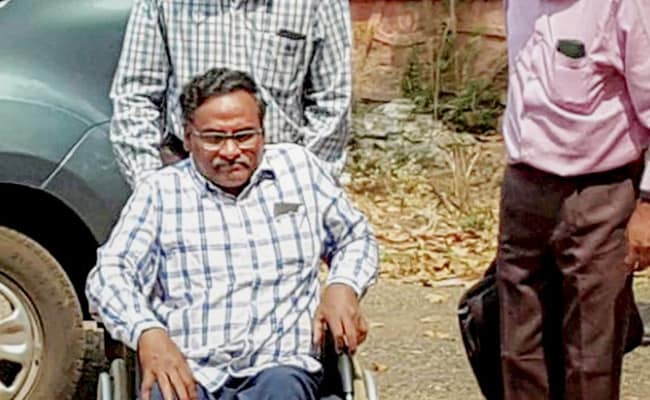
The high court also set aside the life sentence imposed on Mr Saibaba.
New Delhi:
The Maharashtra government on Tuesday moved the Supreme Court challenging the Bombay High Court verdict acquitting former Delhi University professor G N Saibaba in a case in which he was accused of having links with the banned CPI (Maoist).
Earlier in the day, the Nagpur bench of the Bombay High Court acquitted Mr Saibaba, noting that the prosecution failed to prove the case against him.
The high court also set aside the life sentence imposed on Mr Saibaba, 54, and acquitted five other accused in the case.
“The prosecution has failed to prove beyond reasonable doubt the case against the accused persons,” a division bench of Justices Vinay Joshi and Valmiki SA Menezes said.
It held as “null and void” the sanction procured by the prosecution to charge the accused under anti-terror law, the Unlawful Activities (Prevention) Act (UAPA).
“The prosecution has failed to establish any legal seizure or any incriminating material against the accused,” the high court said.
Mr Saibaba, who is wheelchair-bound, is lodged in the Nagpur Central Jail since his arrest in the case in 2014.
In March 2017, a sessions court in Maharashtra’s Gadchiroli district had convicted Mr Saibaba and five others, including a journalist and a Jawaharlal Nehru University (JNU) student, for alleged Maoist links and for indulging in activities amounting to waging war against the country.
The trial court had held Mr Saibaba and others guilty under various provisions of the UAPA and the Indian Penal Code.
On October 14, 2022, another bench of the high court had acquitted Mr Saibaba, noting the trial proceedings were “null and void” in the absence of a valid sanction under the UAPA.
The Maharashtra government, on the same day, approached the Supreme Court challenging the decision.
The Supreme Court initially stayed the order, and later set it aside in April 2023. It directed the high court to hear his appeal afresh.
The earlier high court bench comprising Justices Rohit Deo and Anil Pansare, in its October 2022 judgment, said the sanction to prosecute the five accused under the UAPA was granted in 2014 and against Saibaba in 2015. The five had been arrested before Mr Saibaba.
The bench had noted that in 2014, when the trial court took cognisance of the charge sheet filed by the prosecution, there was no sanction to prosecute Mr Saibaba under the UAPA.
Justice Deo, who was due to retire in December 2025, tendered his resignation on August 4, 2023, citing personal reasons.
(Except for the headline, this story has not been edited by NDTV staff and is published from a syndicated feed.)




